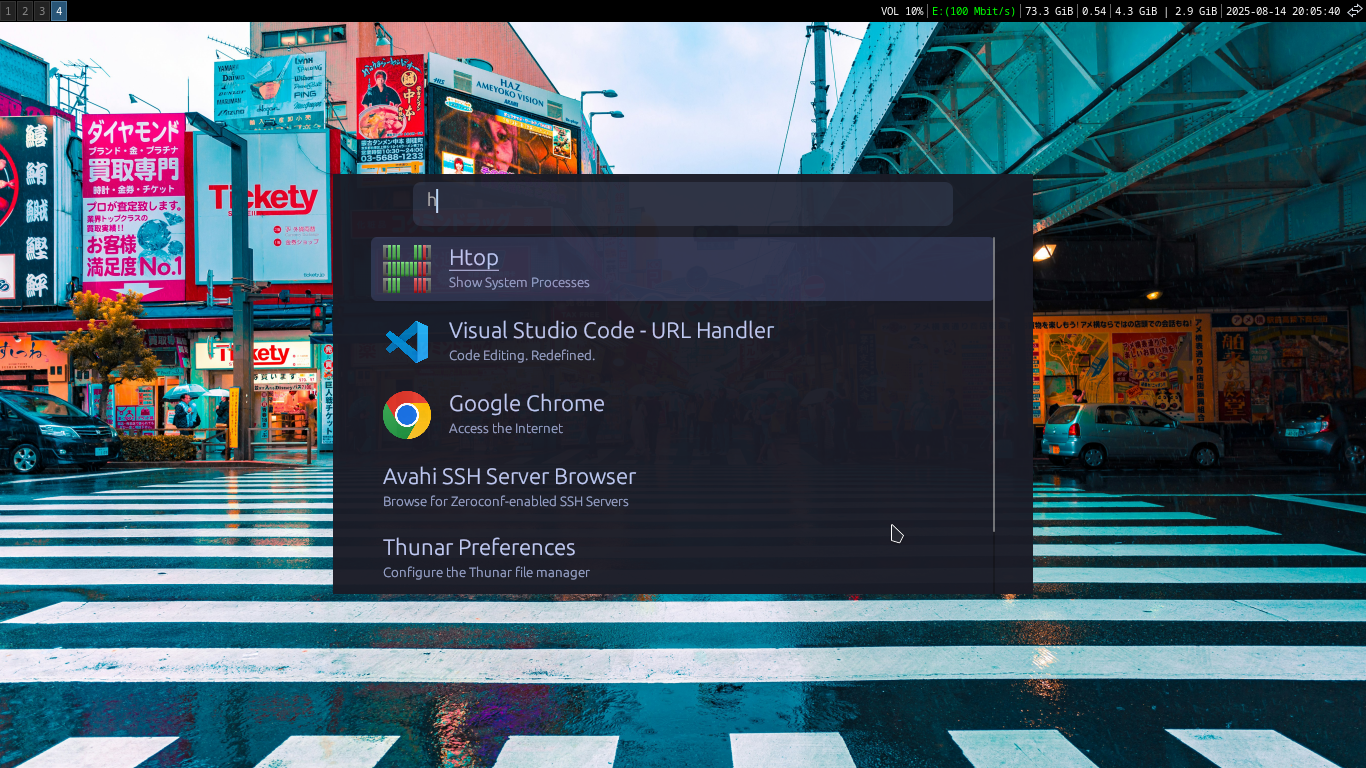
Whenever I complained about launchers, someone would inevitably say, “Just use Windows Search,” and someone else would mention dmenu like that’s the only answer to the launcher issue. And I did for a while. I tried Windows Search. I dealt with dmenu in linux. But, in all honesty? Both have a funky weird feel to them, like they are tools from another time.
Windows Search? Slow, inconsistent, and just clunky while you are supposed to be working. dmenu? It works, sure, but if you want any complications, you’re literally just stitching shell scripts together like it is 2008.
Eventually, I got so sick of it that I did what almost every developer does at some point in their lives: I created the tool I wanted to use every day.
And that is how Q7 Launcher was born. A cross-platform app launcher for Windows and Linux, written in Rust for one reason, speed without compromise.
Windows Search Works… Until It Doesn’t
Don't get me wrong, Windows Search is not horrible. It finds files, launches applications, and whatever else it does. But when you're trying to find something fast like right now, that slight delay feels like forever. And after using it for months, it began to feel heavy and clunky.
As for Linux? I respect dmenu for what it is designed to be, minimal and light. But minimal is not always sufficient. I wanted more customization, more shortcuts, and something that allowed me to avoid maintaining shell scripts to perform simple tasks.
Why Speed Actually Matters
When you start mentioning milliseconds, people roll their eyes, but it adds up. If you're launching the same app a dozen times a day, that "one second slower" is minutes wasted. You just want something that opens instantly, no lag, no spinner, no hesitating. That is why I wrote Q7 in Rust-- it is just fast. Even on my old laptop, it pops open right as I hit the shortcut. Once you feel that kind of responsiveness, reverting back is agony.
It’s More Than Just an App Launcher
Launching apps quickly was the baseline. But I wanted Q7 to do more—to handle the little things that slow you down. So, I built in custom command shortcuts.
Things like:
yt react→ Search YouTube for Reactghrepo linux→ Jump straight to the Linux GitHub repoimg i3wm→ Pull up Google Images for i3wm
Once you get used to this, you start to wonder why launchers didn’t do this all along. No extra clicks, no context switching—just type and go.
Customization That Actually Feels Yours
Themes matter. I didn't want Q7 to feel like just another gray utility, so you can adjust, turn on and off different theme variants, and choose colors to match your desktop setup. Little detail, big deal.
Why Rust?
Rust gave me exactly what I needed: speed, safety, and cross-platform support. No Electron overhead, no unnecessary resource hogging. Just a small, efficient binary that runs everywhere.
Open Source and Ready to Use
If you’re curious, the code’s on GitHub:
- Docs: q7.quadeer.in
- Repo: github.com/quadeer2003/q7-rust-launcher
Why I’m Sticking With Q7
I've tested every launcher available. The problem is, most launchers are either too complicated and bloated or too simplistic. Q7 isn't like that. Q7 is built for speed, simplicity, and real-world workflows.
If you're happy with Windows Search or dmenu, great. Keep using it. If you've ever thought, "There's got to be something quicker, something cleaner than this," Q7 may take you there.
Using it feels refreshing. There's no fluff, no lag; just a launcher that lets you do your business. In a world that seems to be getting heavier and slower, using something this simple feels almost revolutionary.
Fast. Lightweight. Yours to control. That’s Q7.